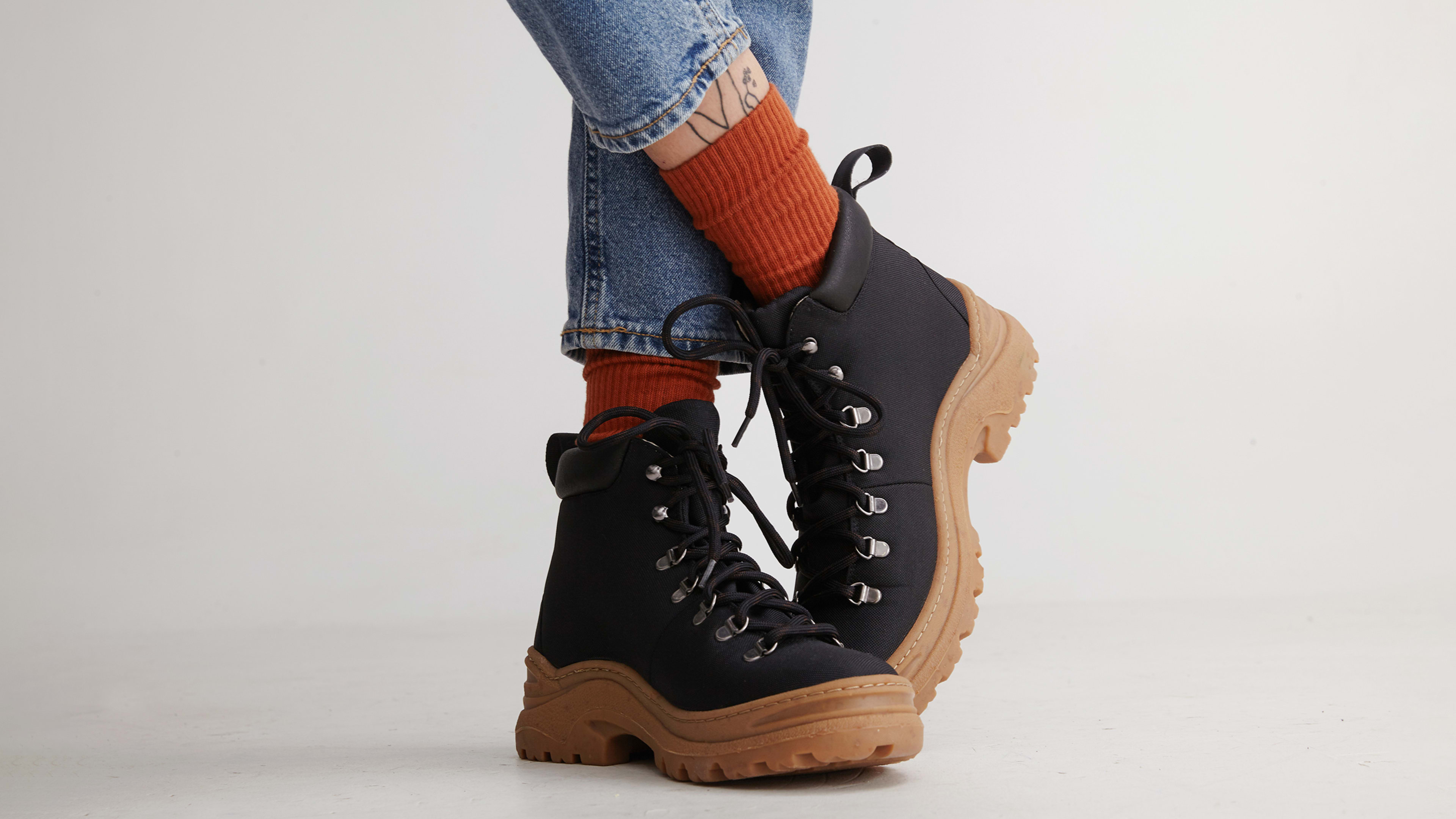It’s hard work designing an eco-friendly shoe.
The design team must compare the pros and cons of hundreds of materials. They will call and visit dozens of suppliers in many different corners of the world. The need to have a plan for what happens to the shoe at the end of its life. And they need to balance the costs, so the final shoe is not prohibitively expensive.
Most shoe brands on the market don’t prioritize sustainability, which is why a decade-old brand called Thesus is making the entire design of its popular eco-friendly Weekend Boot open source. The company is giving potential collaborators and competitors access to their list of materials, suppliers, as well as their eco-system mapping, and even how much they paid at each step.
“We did a lot of deep thinking about exactly the best way to make this boot, and the best way for us to have impact is to give all of this work to the industry,” says Sofi Khwaja, cofounder and CEO of Thesus.
When Khwaja launched Thesus (formerly known as Alice + Whittles) with her husband in 2014, they had spent years developing a Wellington boot made largely from rubber, a natural material that is more sustainable than the plastic that most rain boots are made of.
But rather than just working with suppliers, Khwaja uprooted her family to Sri Lanka, so they could better understand the rubber production process as well as how workers in the supply chain were treated. “We felt it was crucial to be located where the product is being made,” she says. “Otherwise, you really don’t have any idea what is going on on the ground. You can’t take other peoples’ word for it.”

Three years ago, Khwaja launched the Weekend Boot, a rain- and snow-proof boot designed for hiking and everyday wear. Since launch, the company has sold $3 million worth of them. “We believe sustainable design means creating products that can be versatile and durable,” she says.
This time, she and her family moved to Portugal, where there are many footwear manufacturers focused on sustainability. The shoe is made from 96% renewable and recycled materials. The upper is made from recycled plastic, collected from the oceans. The interior is made from recycled nylon, and the mid-upper is made from recycled plastic that comes from car dashboards. It only uses water-based glues, rather than those with toxic chemicals, and does not use any PFAS, toxic chemicals often used in waterproofing.
It’s worth noting that not all sustainability advocates support the use of plastic, even if it is recycled. Recycled plastic does not decompose at the end of its life; instead, it will end up in a landfill where it will slowly break down into tiny particles called microplastics that end up in our oceans, harming both humans and animals.
For now, Thesus doesn’t have a solution for the end of life of its shoe. So when the customer is done wearing it, they have no option but to throw it away.

Some sustainably-minded footwear brands that use plastic try to keep their shoes out of landfills by recycling them at the end of their life. Rothy’s, for instance, makes all of its shoes from recycled plastic bottles; it now takes back old shoes and recycles them back into new shoes. Several sneaker brands, including On and Adidas, will take back old shoes, shred them, and turn them into new shoes. And for three decades, Nike has taken back its old shoes and recycled them into playground flooring, fitness gear, and walkways.
And other shoes brands use non-plastic material when possible, so they will biodegrade at the end of their life: Allbirds uses wool and tree fiber in its uppers; Cariuma uses canvas, recycled leather and rubber.
Still, Thesus’s shoe design is significantly more eco-friendly than many other shoes produced today. And the company wants to make it easier for other brands to effectively steal their ideas. Khwaja and her cofounded wrote an open letter, inviting other players in the industry to access a document with a full listing of the brand’s producers, material suppliers, and design thinking.
Now, it hopes that other big eco-friendly players, like REI and Patagonia, use all of this knowledge to make their own boots. “We hope they do it in partnership with us, through collaborations, but that is not a requirement,” she says. “We just want to accelerate these ideas.”
Recognize your brand’s excellence by applying to this year’s Brands That Matter Awards before the final deadline, June 7.
Sign up for Brands That Matter notifications here.
